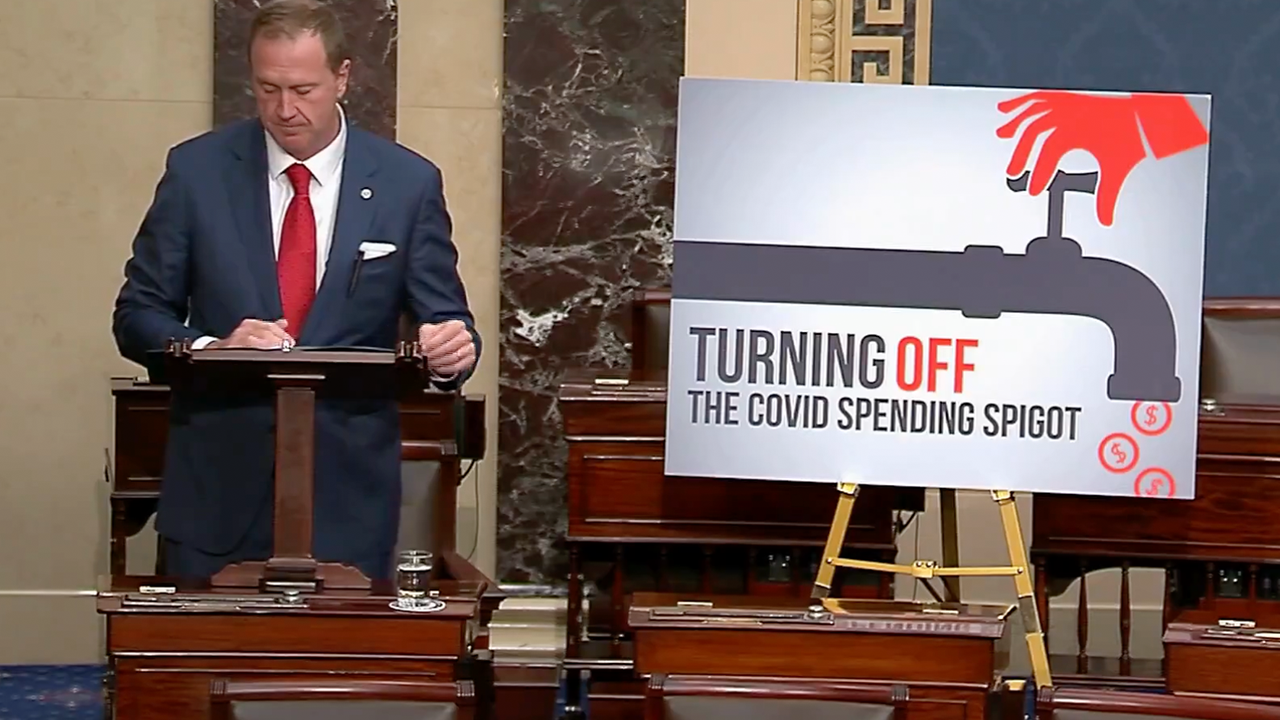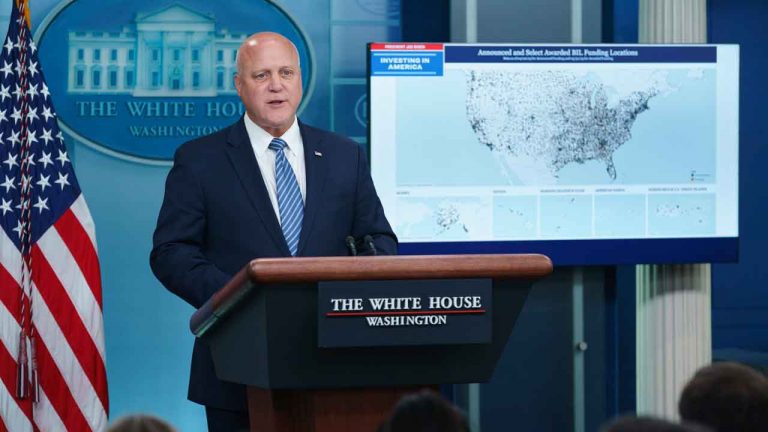Republican Senators criticize Biden administration for spending on COVID, say it needs to stop
Senate Democrats have recently made a controversial decision that may have significant implications for American taxpayers. An effort led by Sen. Eric Schmitt, R-Mo., to save over $13 billion by curbing wasteful spending was thwarted after a vote in the Senate did not pass his disapproval resolution. This move has sparked criticism and concern among Republicans, who argue that it is essential to hold unelected officials accountable and prevent the continued misuse of public funds.
In a press release following the Senate vote, Schmitt expressed his disappointment with the outcome, accusing Senate Democrats of shielding unelected bureaucrats from accountability and enabling the Biden Administration to squander taxpayer dollars on projects unrelated to their original purpose. The resolution lodged under the Congressional Review Act targeted the Treasury Department’s alleged mishandling of COVID recovery funds, aiming to address what Republicans perceive as financial mismanagement and inefficiency within the government.
Joining Schmitt are several Midwest Republican Senators, including Sen. Roger Marshall, R-Kan., Sen. Ron Johnson, R-Wis., and Sen. Pete Ricketts, R-Neb., who collectively presented the resolution calling for greater transparency and oversight in the allocation of emergency funds. They argue that the current economic challenges facing Americans, such as inflation and rising prices, are exacerbated by reckless government spending, necessitating immediate intervention.
During a press conference, Schmitt emphasized the urgency of the situation, pointing out that Congress initially authorized over $300 billion in response to the COVID crisis, with a deadline set for the end of the year. Given the economic landscape and the conclusion of the pandemic, Schmitt contends that it is time to reevaluate the necessity of continued spending and make informed decisions that prioritize the interests of taxpayers.
Senator Marshall echoed these sentiments, drawing attention to the broader implications of unchecked government expenditure on inflation rates and interest rates. He criticized the Biden Administration’s handling of the pandemic relief funds, citing the adverse impact on American households and the need for fiscal responsibility moving forward.
Additionally, Senator Ricketts highlighted the extensive financial repercussions of the government’s actions, asserting that Biden’s policies have resulted in exorbitant spending and subsequent inflation. He reaffirmed his commitment to working alongside Schmitt to combat what he views as a violation of fiscal norms and a disregard for the well-being of taxpayers.
In response to concerns raised by the Biden Administration regarding the potential cancellation of ongoing projects and reduced oversight, Schmitt and his fellow Republicans dismissed these claims as unfounded. They argued that existing laws and regulations provide adequate safeguards to ensure that allocated funds are used appropriately and that any obligations made prior to 2024 would be honored as required.
Despite their efforts to persuade their colleagues in the Senate, the resolution ultimately failed to pass, with a vote count of 49-46. This outcome underscores the deep partisan divide surrounding fiscal policy and accountability within the government, leaving many unanswered questions about the future of federal spending and financial stewardship.
As the debate over government spending continues to unfold, the ramifications of these decisions will undoubtedly reverberate throughout the political landscape and impact the lives of millions of Americans. The clash between opposing ideologies and competing priorities underscores the complexities of managing public funds and ensuring transparency in governance. Moving forward, the need for bipartisan cooperation and responsible fiscal governance remains paramount to address the economic challenges facing the nation in the post-pandemic era.








